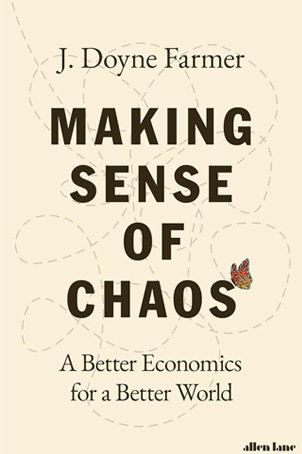Overview:
We live in an age of increasing complexity, where accelerating technology and global interconnection hold more promise – and more peril – than any other time in human history. As well as financial crises, issues around climate change, automation, growing inequality and polarization are all rooted in the economy, yet standard economic predictions fail us.
Using big data and ever more powerful computers, we can for the first time apply complex systems science to economic activity, building realistic models of the global economy. The resulting simulations and the emergent behaviour we observe form the cornerstone of complexity economics. This new science, Farmer shows, will allow us to test ideas and make significantly better economic predictions – and, ultimately, create a better world.
Making Sense of Chaos
18-07-2024
Author(s): J. Doyne Farmer
Publication Number: ECES-SB289
Issued in: 2024

